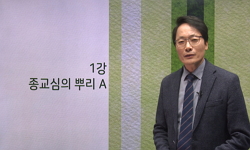신-바빌로니아 제국 마지막 왕 나보니두스는 그의 종교적 성향이 특이한 것으로 유명하다. 그런데 이런 사실을 증명할 사료들은 매우 편향적이며 서로 모순되어 고대사를 재구성하려는 목...
http://chineseinput.net/에서 pinyin(병음)방식으로 중국어를 변환할 수 있습니다.
변환된 중국어를 복사하여 사용하시면 됩니다.
- 中文 을 입력하시려면 zhongwen을 입력하시고 space를누르시면됩니다.
- 北京 을 입력하시려면 beijing을 입력하시고 space를 누르시면 됩니다.
부가정보
국문 초록 (Abstract)
신-바빌로니아 제국 마지막 왕 나보니두스는 그의 종교적 성향이 특이한 것으로 유명하다. 그런데 이런 사실을 증명할 사료들은 매우 편향적이며 서로 모순되어 고대사를 재구성하려는 목적을 가진 학자들을 궁지로 몰아 넣고 있다. 그리고 비판적인 사료평가를 연구에 반영하지 않고 생산된 연구들은 결국 나보니두스가 이단적인 왕이었다는 결론에 도달하게 만들었다. 이러한 사료들의 가치와 의미를 적절하게 평가하기 위해서 새로운 질문을 던질 필요가 있다. 존 헨더슨(John B. Henderson)의 ‘논박의 유형(patterns of refutation)’이라는 연구방법을 통해 나보니두스와 관련된 사료를 재평가하고, 이런 사료들 이면에 숨어있던 것이 고대 바벨 사회 안에서 진행되던 이익집단들의 정치적 주도권 다툼이었음을 밝히고자 한다. 그리고 이런 다툼과 논박을 통해 기대하지 않던 새로운 종교적 사상이 태동하고 있음을 관찰할 수 있다.
다국어 초록 (Multilingual Abstract)
Nabonidus, the last king of Babylon, is famous for his religious peculiarity. But historical sources from his time are so biased and contradictory that modern students of the ancient history are pushed to a stalemate. This history of the last days of ...
Nabonidus, the last king of Babylon, is famous for his religious peculiarity. But historical sources from his time are so biased and contradictory that modern students of the ancient history are pushed to a stalemate. This history of the last days of the Neo-Babylonian Empire and of Nabonidus, written without proper critical review of the sources, has come to the conclusion that Nabonidus was a heretic king. For this reason a new set of questions need to be asked regarding the historical sources. Using the research method of John B. Henderson, ‘patterns of refutation,’ this essay tries to re-evaluate the historical sources from the days of Nabonidus and to reveal the arguments going on among the competing groups of Babylonian society. In the course of the conflict, they might have come up with a novel religious idea that was not a part of their traditional religious system.
동일학술지(권/호) 다른 논문
-
The Wisdom Motif of ‘Plucking and Destroying’, and ‘Planting and Building’, in the Book of Jeremiah
- 한국서양고대역사문화학회
- 유윤종
- 2018
- KCI등재
-
Religious Thoughts in the Days of Nabonidus, king of Babylon
- 한국서양고대역사문화학회
- 윤성덕
- 2018
- KCI등재
-
- 한국서양고대역사문화학회
- 김상엽
- 2018
- KCI등재
-
- 한국서양고대역사문화학회
- 안희돈
- 2018
- KCI등재





 KCI
KCI KISS
KISS







